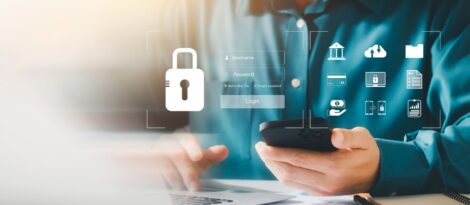Understand common cybersecurity terminology
In order to understand the latest warnings and alerts, you need to know the most common words used in cybersecurity.
- Virtual Private Network (VPN): A service that connects your device to a private network even when you’re using a shared or public one. This protects your privacy and data so that if you log into your financial accounts or go shopping online, hackers can’t steal your sensitive information. Working from home usually requires this.
- Ransomware: Malicious software that blocks your access to your device or certain files until you pay the requested ransom.
- Trojan horse: A computer program that appears useful and benevolent but is actually harming your device behind the scenes.
- Spyware: Secretly installed software that can steal information from your device without your knowledge.
- Distributed Denial of Service (DDoS): A method of overwhelming a network with malicious traffic so that it cannot operate as usual.
- Phishing: A play on the word fishing, this is a type of scam in which fraudsters pose as a legitimate business, bank, or government department to trick you into providing sensitive personal or financial information.
- Encryption: The process of converting data into a form that cannot be easily deciphered by unauthorized viewers.
Holiday Cybersecurity Tips for Home
Holiday spending is expected to break records this year, and about 11-15 percent more of that shopping will be done online this year, according to the National Retail Federation. With more people making online holiday purchases from home and having packages delivered, it’s time for a cybersecurity tune-up for your personal devices and habits.
- Avoid online shopping on a public or shared network or use a VPN (see above).
- Consider using one dedicated credit card for holiday purchases instead of splitting transactions among your debit and other credit cards. That way, if one card gets compromised, you still have other options.
- Visit websites directly, by typing their URLs into your browser instead of following links from social media or other sources. This helps you avoid visiting phishing websites disguised as the real thing.
- Look for a padlock at the beginning of the web address, which indicates that the site is secure.
- Don’t enter payment or personal information on an unsecured site.
- As convenient as it may be, it’s better to not save or store payment information.
- Make sure your personal computer has updated anti-virus software.
- If the price seems too good to be true, it probably is. A general web search for a popular item often returns at least one result to buy the item at a lower-than-normal price. If it’s not an e-commerce website you’ve heard of, it’s likely to be a phishing scam.
- A cheap price could also mean a knock-off product. Look for product reviews.
- Proceed with caution. Keep your wits about you, think before you click, and trust your instincts if something seems “off.”
- Use a strong, unique password for each account you create. If this seems cumbersome, a password manager tool can securely create and store logins for you.
- Opt-in for two-factor authentication when available. 2FA, as it’s also known, requires you to provide an additional credential, such as a one-time passcode texted to your phone, when logging into your account. It’s an extra layer of protection so that if a hacker gains your login credentials, they still can’t access your account.
- Shred personal documents with personally identifiable information on them such as receipts, bank and credit card statements, and more.
Holiday Tips for the Workplace
Scammers never rest, especially during the holiday season when consumers may be too busy or distracted to pay close attention. From charitable giving scams to phishing and more, it’s important to protect your business and workplace from cyber criminals.
- Review emails carefully when they are asking for your personal information, login credentials, or account numbers. Spelling errors, email addresses that misspell the name of the company or institution, and long URLs can all be signs of a potential scam. Call the company in question directly instead of clicking on a link or using a phone number in an email. Remember that as your bank, Dieterich will never request your account number, debit card information, or other sensitive data.
- Don’t download attachments you weren’t expecting, especially from unfamiliar senders.
- Hover your mouse over links for a second to see the full URL.
- If working remotely, always connect to your employer’s VPN (see above).
- Don’t conduct personal business on your work computer and vice versa.
- As with your personal accounts, create unique, strong passwords for your work accounts.
- Lock your work computer when not in front of it.
- Avoid saving sensitive information locally on your work devices.
- Back up your files early and often to avoid data loss.
There’s only one bank named Dieterich…YOURS!
At Dieterich Bank, we care about the financial and cyber security of our Illinois customers and communities. If you have any questions or concerns about the safety of your account at Dieterich, don’t hesitate to contact us. We also offer a variety of personal and business accounts and products to help you manage your finances during the holiday season and beyond. Read our Financial Security Tips article for more advice on protecting yourself from hackers.





